Report in pictures
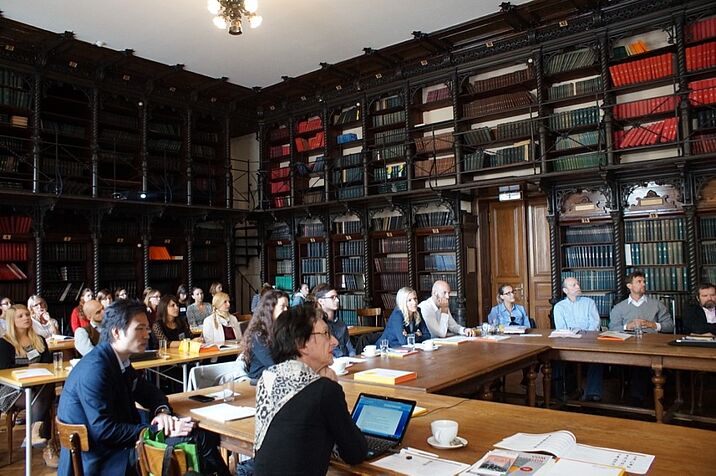
The library of the Billrothhaus of the Medical Chamber of the City of Vienna provided the ambience for the International CENOF Symposium with guests from the USA, UK, Germany, Switzerland and Greece, and with the presence of CENOF cooperation partners as well as colleagues and students of the Faculty of Psychology. The aim was to present, discuss and explore the first research results of a selected specialist public.
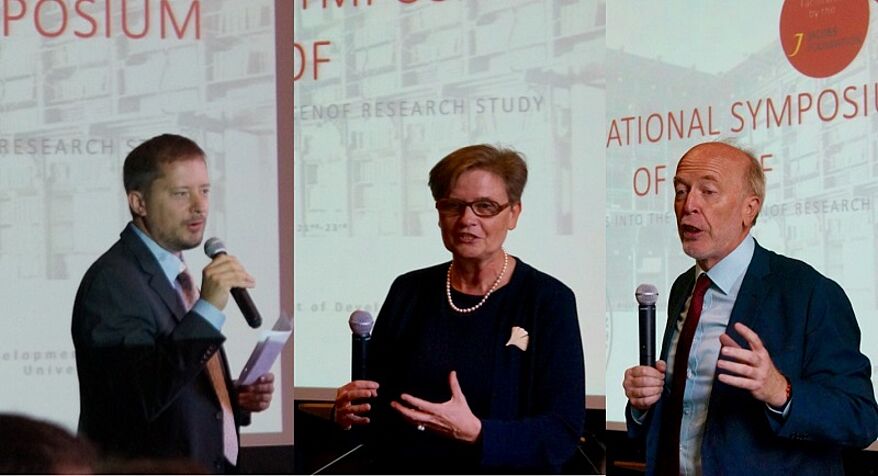
At the opening of the symposium, vice-rector Susanne Weigelin-Schwiedrzik (center) stressed the value
of CENOF research in the research program at the University of Vienna, and praised the promoting of young scientists by CENOF in particular. Dean Germain Weber (University of Vienna/Austria, right) emphasized the management with whom CENOF and the Vienna headquarter were working on a rather difficult research area, and Simon Sommer (left), research director of the Jacobsfoundation, spoke with great appreciation of the inconveniences that CENOF had to embrace so far in order to also promote father research internationally.
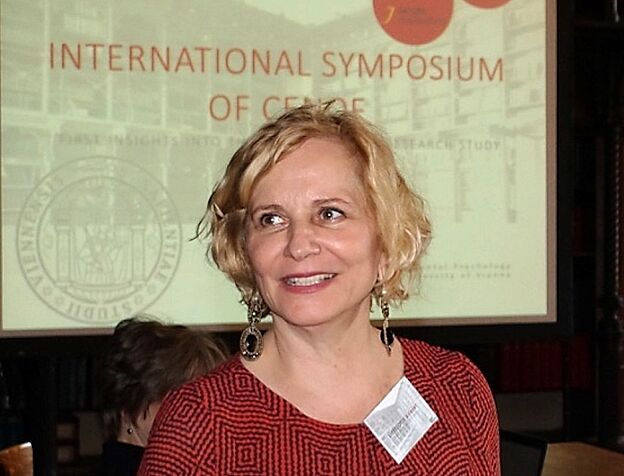
Lieselotte Ahnert (University of Vienna/Austria), spokeswoman of CENOF, spoke about the beginnings and about how CENOF had tried from the beginning to make use of six different research traditions in psychology for research on fatherhood which, up until then, had only examined isolated questions, but were not able to develop a uniform theoretical framework. For example, CENOF focused on synergy effects from the various traditions and closely linked the empirical work methodically.
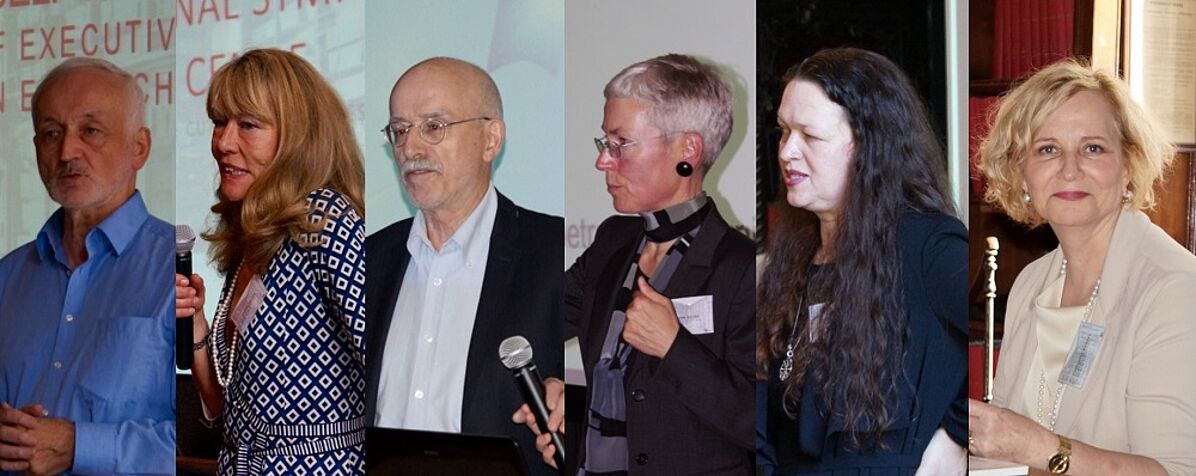
The six different research traditions were incorporated in CENOF research with personality psychology by Julius Kuhl (University of Osnabrück/Germany, 1st left), biopsychology by Ulrike Ehlert (University of Zurich/Switzerland, 2nd left), evolutionary psychology by Harald Euler (University of Kassel/Germany, 3rd left ), occupational psychology by Petra Klumb (University of Fribourg/Switzerland, 3rd right), psychopathology by Katja Nowacki (Applied School of Dortmund/Germany, 2nd right), and developmental psychology by Lieselotte Ahnert.
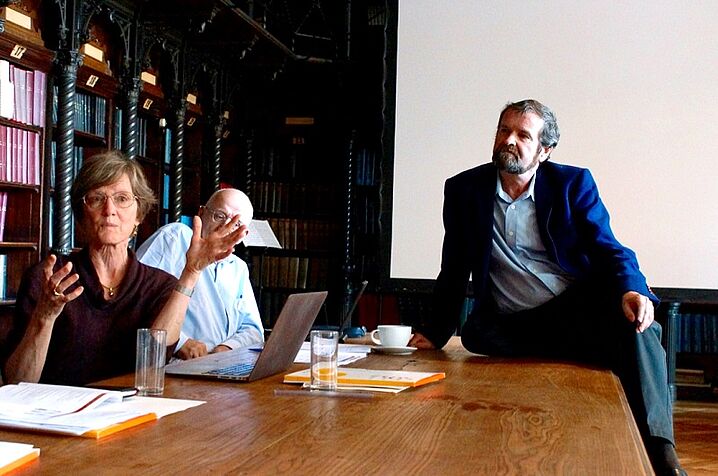
Michael Lamb (University of Cambridge/UK) and Carol Worthmann (Emory University/USA) had already received the contributions to the symposium a few days earlier, in order to be able to reflect on them in a concentrated manner. At the same time, their comments prepared the lively general discussion and opened debates which continued into the coffee and lunch breaks.
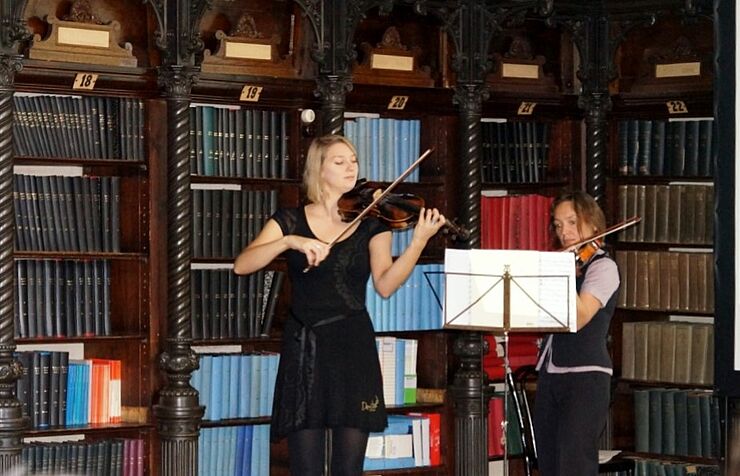
One of the special features of this symposium was that the violin playing by Michaela Kaaser (Master student of Psychology, left) and Margit Thieme (right) not only solemnly opened the symposium, but also contributed to the reflection and relaxation during the breaks.
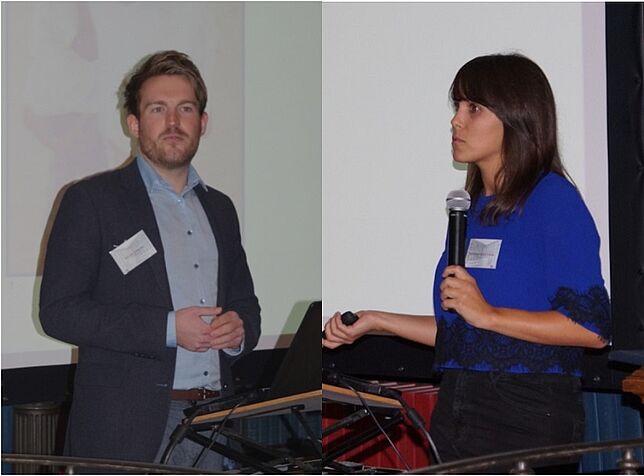
After the introduction by Ulrike Ehlert, the first topic "Hormonal correlates of fatherhood" was contested by inputs from Patricia Waldvogel (University of Zurich/Switzerland, left) and Markus Bauer (University of Vienna/Austria, right). The discussion initially had to do with the extent to which the contexts in which men and fathers live with children are connected to their health-related wellbeing, and to what extent biological indicators determine paternal care.
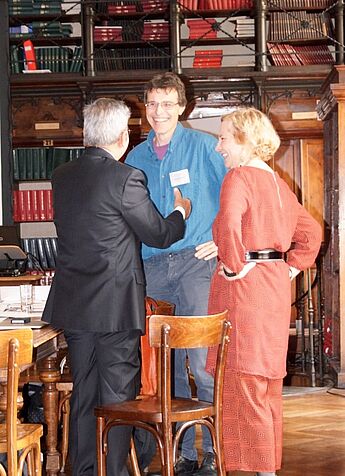
Wassilios Fthenakis (University of Bressanone/Greece, left), who had published his two-volume work "Fathers" 30 years ago, as well as Harald Werneck (University of Vienna/Austria), who studied father types in modern families over many years, showed particular interest in the biopsychological research inputs and their results.
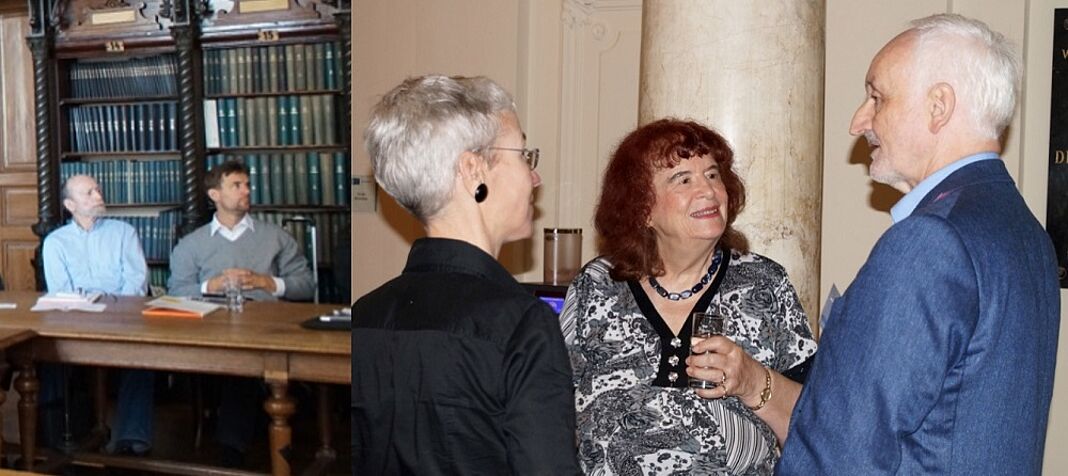
Other researchers on fatherhood were very much inspired by many of the new results and contributed significantly to the expansion of the discussion (left: Heinz Walter (University of Konstanz/Germany), second left: Johannes Huber (University of Innsbruck/Austria), right: Julius Kuhl, second right: Brigitte Rollett, (University of Vienna/Austria), middle: Petra Klumb.
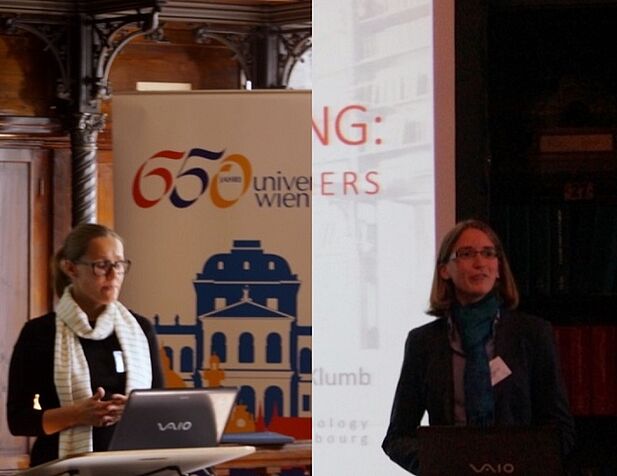
As part of the second key topic "Looking at common contextual conditions of fatherhood", Barbara Supper (University of Vienna/Austria) (on the left) and Regina Jensen (University of Fribourg/Switzerland) presented results that were related to the work environment of fathers and affected partnership and childcare of the families.
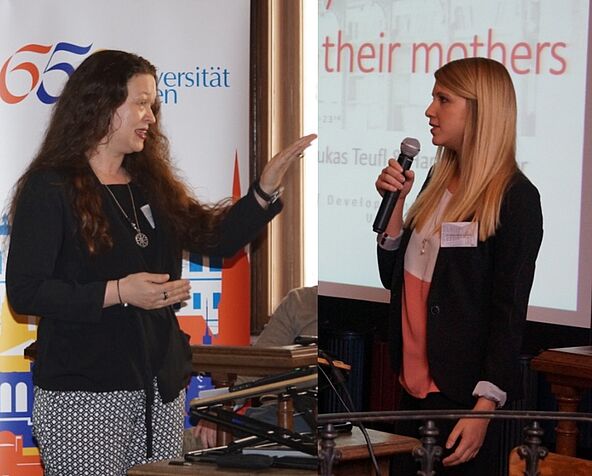
The third key topic was "Exploring fatherhood under special conditions", which was introduced by Harald Euler . Sophia Wieländer (University of Vienna/Austria, right) described relationships that characterize stepfathers with their own children as well as with their stepchildren. Katja Nowacki (lefT) gave a comprehensive overview of the studies on fathers through biographies, who were burdened by parental desertion, placement in a children’s home and growing up in foster families.
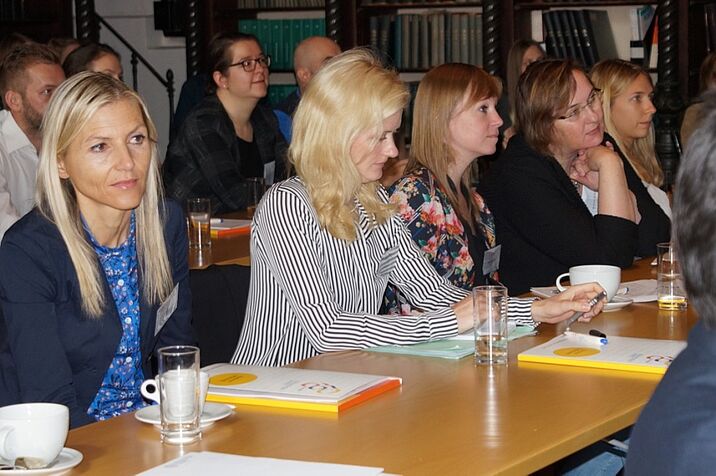
Many of these facts led to great contemplation, but also to surprisingly new research references, such as the contributions made by Bettina Wiese & Anne Stertz (University of Aachen/Germany, 2nd and 3rd from right) from the Aachener Research at the "Get together" later on.
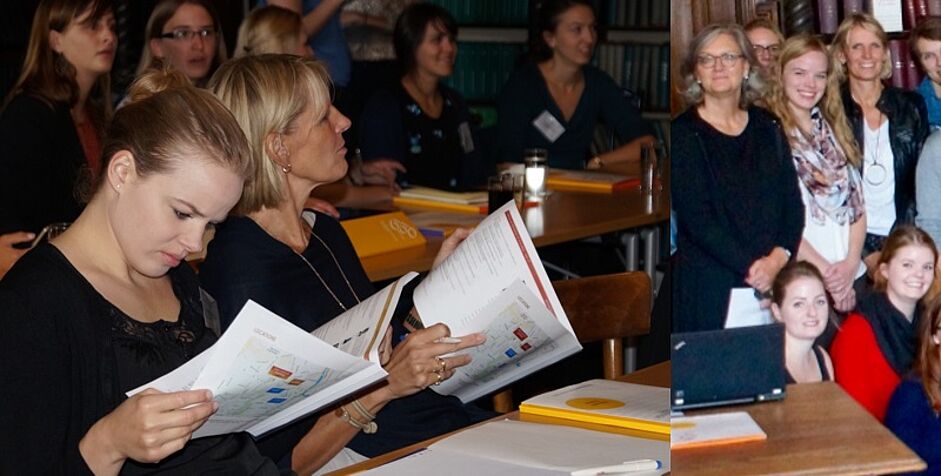
There were also repeated demands for evidence-based measures for psychological practice that would not have been brought up so consequently without the presence of the CENOF cooperation partners: Renate Fuiko & Christiane Leeb (clinical School of Vienna, second from left and left) and Elke Fuchs (picture 2: left)
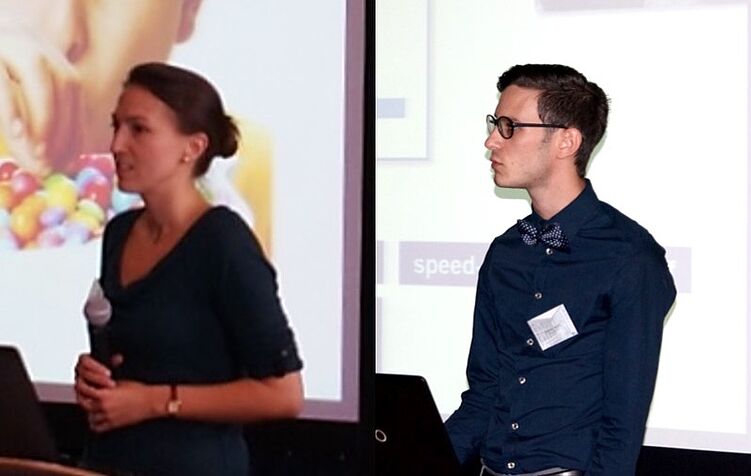
After the introduction of the fourth key topic "Fatherhood as related to children's growing self-competencies" by Julius Kuhl, Ann-Kathrin Hirschauer (University of Osnabrück/Germany) and Lukas Teufl (University of Vienna/Austria) presented research results on paternal influences on self-regulation as well as attention and behavioral control of the child.
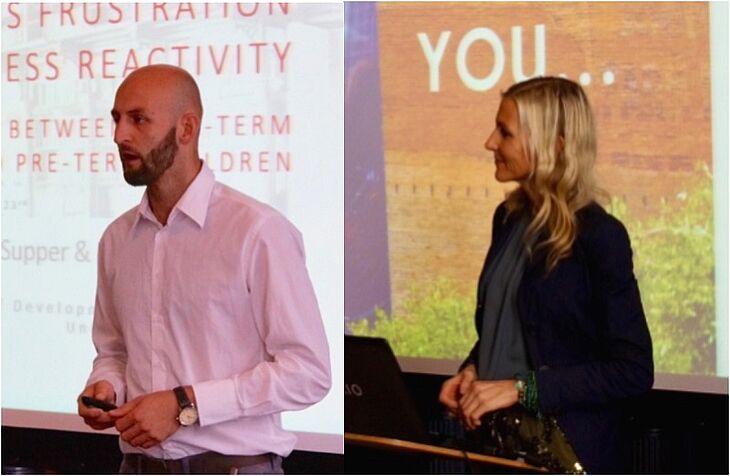
Lieselotte Ahnert introduced the fifth key topic "Fatherhood as related to children's arousal and stress regulation". While Andrea Witting (University of Vienna/Austria was able to show how helpless fathers are with extremely vulnerable and quickly excitable (as is the case with premature infants) children, Felix Deichmann (University of Vienna/Austria) presented experimental results on paternal strategies for such arousal and stress patterns.
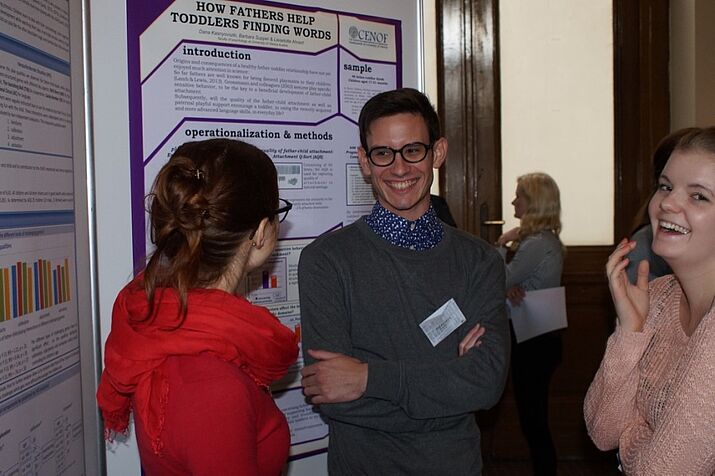
The contributions of the symposium were also flanked by poster presentations, which were shown at the entrance of the Billrothhaus. A jury from the CENOF headquarter awarded posters that presented research project results based on a sound methodology in a visually attractive manner. The receivers of the awards were (in alphabetical order): Verena Hohengasser (University of Vienna/Austria); Elisabeth Mautner (University of Vienna/Austria; Camille Morgenthaler (University of Friborg/Switzerland); Alisa Vogt (University of Vienna/Austria) and Marion Wild (University of Zurich/Switzerland).
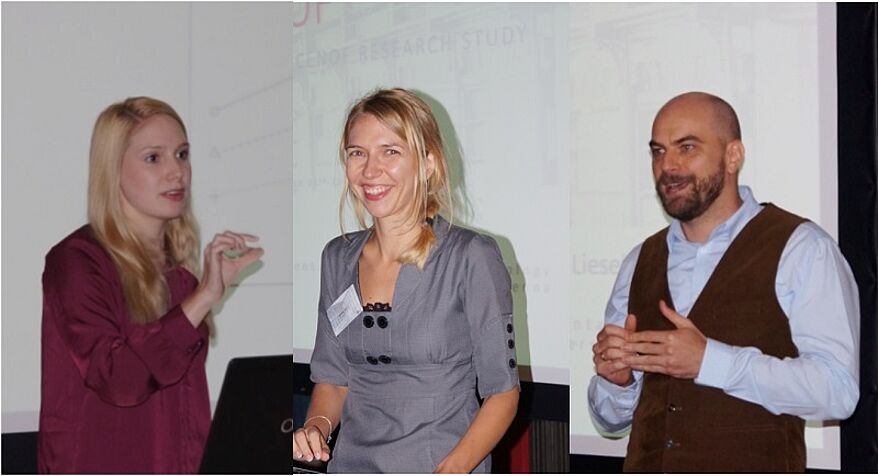
The final key topic "Setting the ground for a better understanding of fatherhood" included three contributions presenting the central CENOF methods (both strongly adapted as well as newly developed). The presentations on the paternal motive structure (Jessica Ruppen, University of Zurich/Switzerland), on the paternal provision of time for the child (Bernhard Piskernik, University of Vienna/Austria) as well as on the description of paternal play behavior (Nina Ruiz, University of Vienna/Austria) attracted great interest.
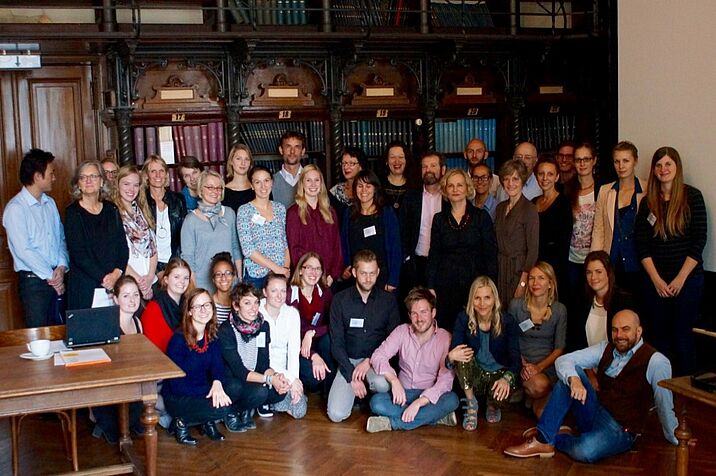
On the first evening of the symposium, there was a joint dinner with all guests, in order for them to become better acquainted. In the end, an invitation was given to all young scientists (doctoral students and master students) for a "Detention Class" in a restaurant, in order to acknowledge and appreciate the outstanding commitment of each individual with a good meal and wine.
